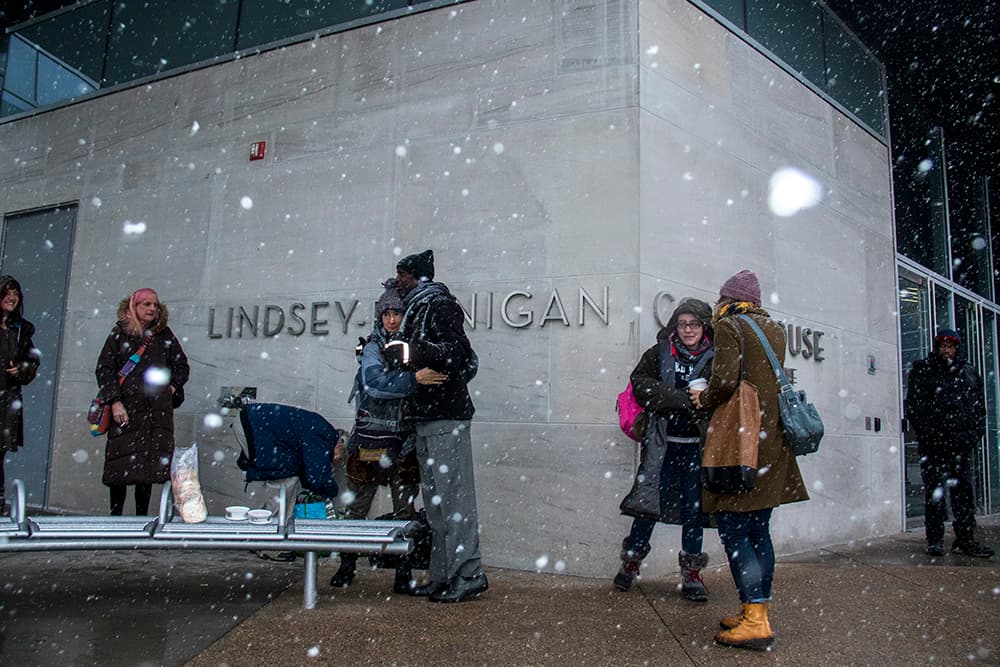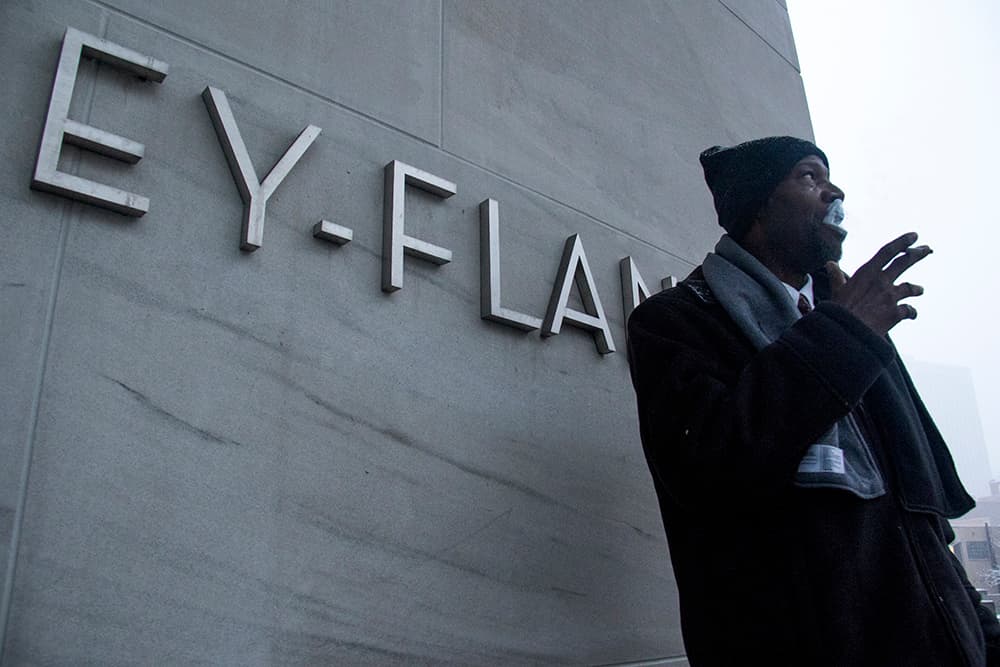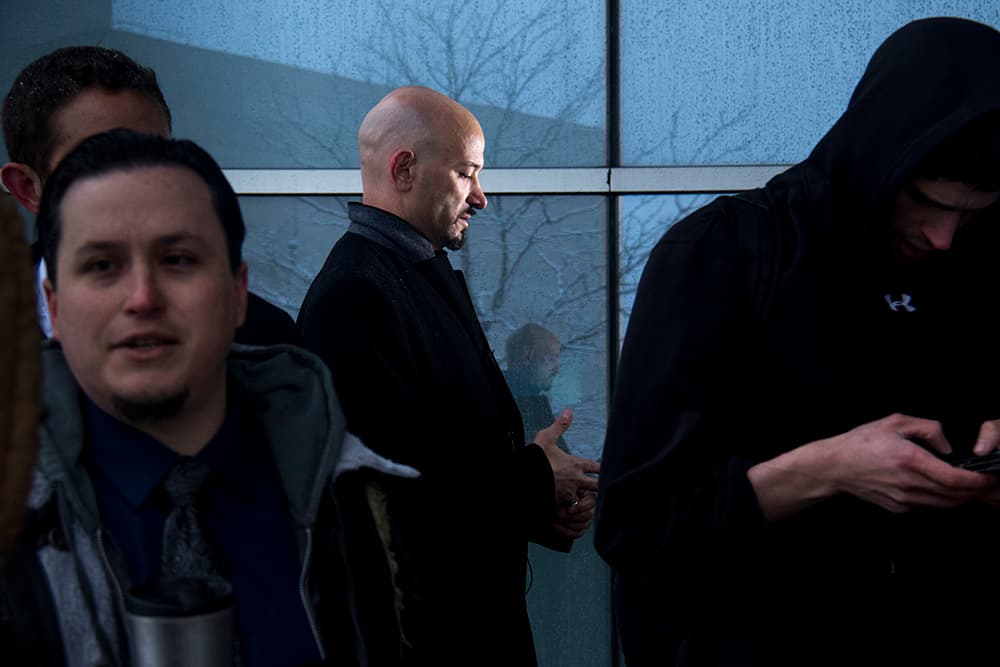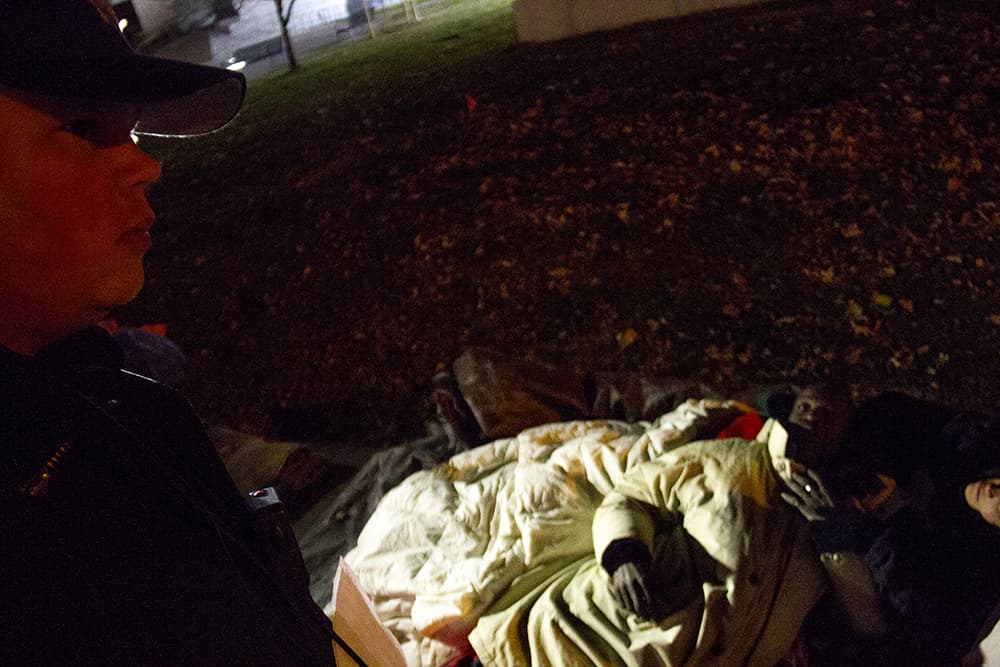
One man said his uncle was homeless and had done plenty of "rogue camping." He couldn't see a crime where there's no victim.
Another woman had spent years volunteering to help undocumented immigrants.
"I believe so much in the justice system, but my lens is: Is this a just law?" she said. "It would be very difficult for me to separate my sense of justice because I've worked with so many people who were on the other side of the law."
One young woman said simply, "No," when asked if she would vote to convict if the prosecution proved its case beyond a reasonable doubt.
"I don't see the social value of convicting them," said another.

Prosecutors from the Denver City Attorney's Office and defense attorney Jason Flores-Williams did eventually get down to six jurors who felt they could sit in impartial judgement of Jerry Burton, Randy Russell and Terese Howard. They are all charged with violating Denver's ban on urban camping and pleaded not guilty in the first real challenge to the city's five year old ban.
But at least a half-dozen potential jurors expressed serious reservations about the law, which does not allow people to "reside or dwell temporarily ... with shelter" in any unauthorized public or private place.
"Shelter" is defined as "any tent, tarpaulin, lean-to, sleeping bag, bedroll, blankets, or any form of cover or protection from the elements other than clothing." "Reside or dwell" means "conducting such activities as eating, sleeping or the storage of personal possessions."
The jury selection process took nearly three hours Tuesday. Senior Assistant City Attorney Rebekah Watada asked juror after juror if they could leave their "social commentary" at the door and decide simply whether or not the defendants violated the law as written, not whether the law is fair or just. Many said they thought they could.
Others had had negative experiences with homeless people. One man said he owned property near the Ballpark area where the first citations were issued to Burton and Russell on Nov. 28, and that he had had "vagrants" break into his buildings and tenants move out because of the large number of homeless people in the area.
And some went further, insisting that a law is a law and should be followed as long as it's in place.
Even Rosa Parks? Flores-Williams asked that juror. Should she have been punished for sitting in the white section of a segregated bus?
"If that was the law at the time, then yes," the juror said, seeming a little troubled even by his own answer.

The trial itself started Tuesday and continues today (and possibly Thursday).
It was clear that prosecutors want to show the jury not just that the defendants broke the law but that the law is necessary. They introduced into evidence numerous photos that showed the encampments taking up the sidewalks at 2300 Lawrence Street, near Good Samaritan House, and along 27th and Arapahoe, where Burton and Russell were ticketed after refusing repeated warnings. They also asked the string of police officers called to testify about the conditions in the encampments.
Denver police Lt. Michael Wyatt described "deplorable" conditions.
"It's many of the things you would imagine if someone were residing on the sidewalk," he said. "Old food items, vomit, feces, urine."
Flores-Williams asked questions of the police witnesses that implied their efforts to offer assistance to the defendants -- a condition of the law -- were inadequate and pro forma. He also asked questions that implied the law's enforcement was inhumane. Officer Samuel Grier acknowledged he used a bullhorn to wake people up in the morning --he said he'd been assaulted trying to wake people up by touching their shoulders -- though other police witnesses said they were not aware of this practice.
Flores-Williams also asked them their opinions about the law and how it was enforced and whether it was a good use of resources, marveling at the massive city response to clean up the Ballpark area, which included a dozen police officers, crews of inmate labor from the Denver jail and Public Works crews. Prosecutors objected frequently to these questions on the grounds of relevance, and Judge Kerri Lombardi sustained those objections.

When Flores-Williams asked Officer Jason Rivera to explain why he found the homeless law difficult to enforce, Rivera responded that many aspects of his job are difficult and included the entire community in the impact of homelessness.
"It's bleak out there sometimes," he said. "It's bleak for the police, it's bleak for the business owners and residents who have to deal with it. It's bleak for the folks without shelter."












